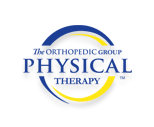How common are injuries related to motor vehicle injuries?
It is estimated that on average there are more than 6 million vehicle accidents in the United States alone, more than 4 million persons are injured in collisions, and more than 2 million injuries sustained are permanent disability.
What are common injuries sustained in motor vehicle accidents that my Physical Therapist is able to treat?
Fractures and complete breaks of bone
Following treatment by an orthopedic surgeon in many cases it will be necessary for a Physical Therapist to examine the patients movement patterns and strength and then develop a specialized treatment plan to aid in recovery.
Spinal Injuries
The number one injury sustained in this case is a “Whiplash” injury in which the ligaments about the cervical neck are disrupted which may cause instability of the neck, pain with motions as well as loss in range of motion.
These injuries typically present with significant pain, strains of ligaments and muscles about the neck
Patients with spinal injuries may present with need to be evaluated by a physical therapist in due to sustaining an injury which causes pain, loss of sensation in the upper extremities, loss of range of motion of the neck (patients are unable to look over one or both shoulders or perform flexion and extension activities) or to address concerns secondary to paralysis or quadriplegia
Disruption or injury to the arteries and veins of cervical region which may not immediately present medically in which the patient feels lightheaded, dizziness, or episodes of fainting/passing out
Concussive and Traumatic Brain Injuries
Possible internal damage to organs which may not present immediately
Abdominal tissue injuries
Organ tissue injuries (A physical therapist will not medically diagnose an injury to Spleen, Liver, Diaphragm, Kidneys, or Bladder but they are able to monitor the patient’s signs and symptoms so that if there is confounding information and reports of pain unexplainable to muscle or movements they are able to make an immediate referral to the appropriate physician to further evaluate the patient medically)
Shoulder, Arm, Pelvis, Leg, and knee injuries
Shoulder and Arm may be related to seat belt injuries resulting in disruption of the normal mechanics of the shoulder in the case of Acromio-Clavicular joint, and Gleno-humeral joint (shoulder) dysfunctions
Pelvis and Knee injuries resulting from impacting the knee into the dashboard in the case of a violent collision or possible knee ligament injuries resulting from a sudden forceful depression of the brake pedal
